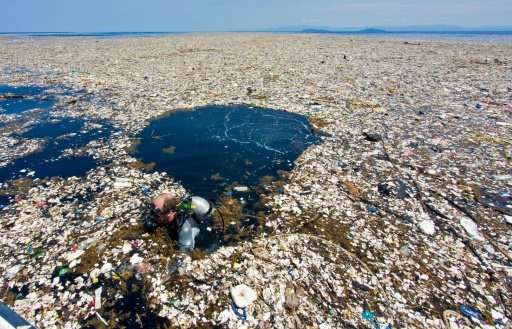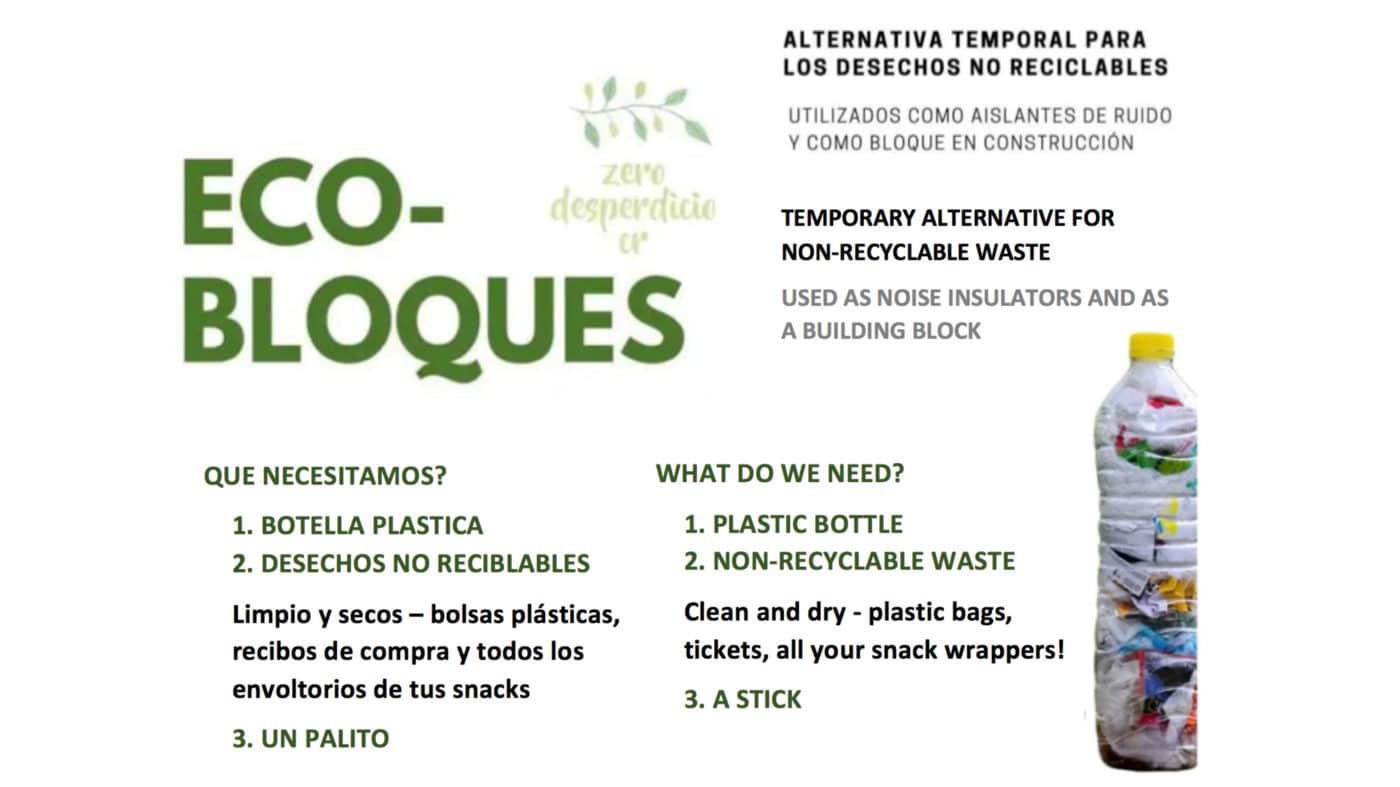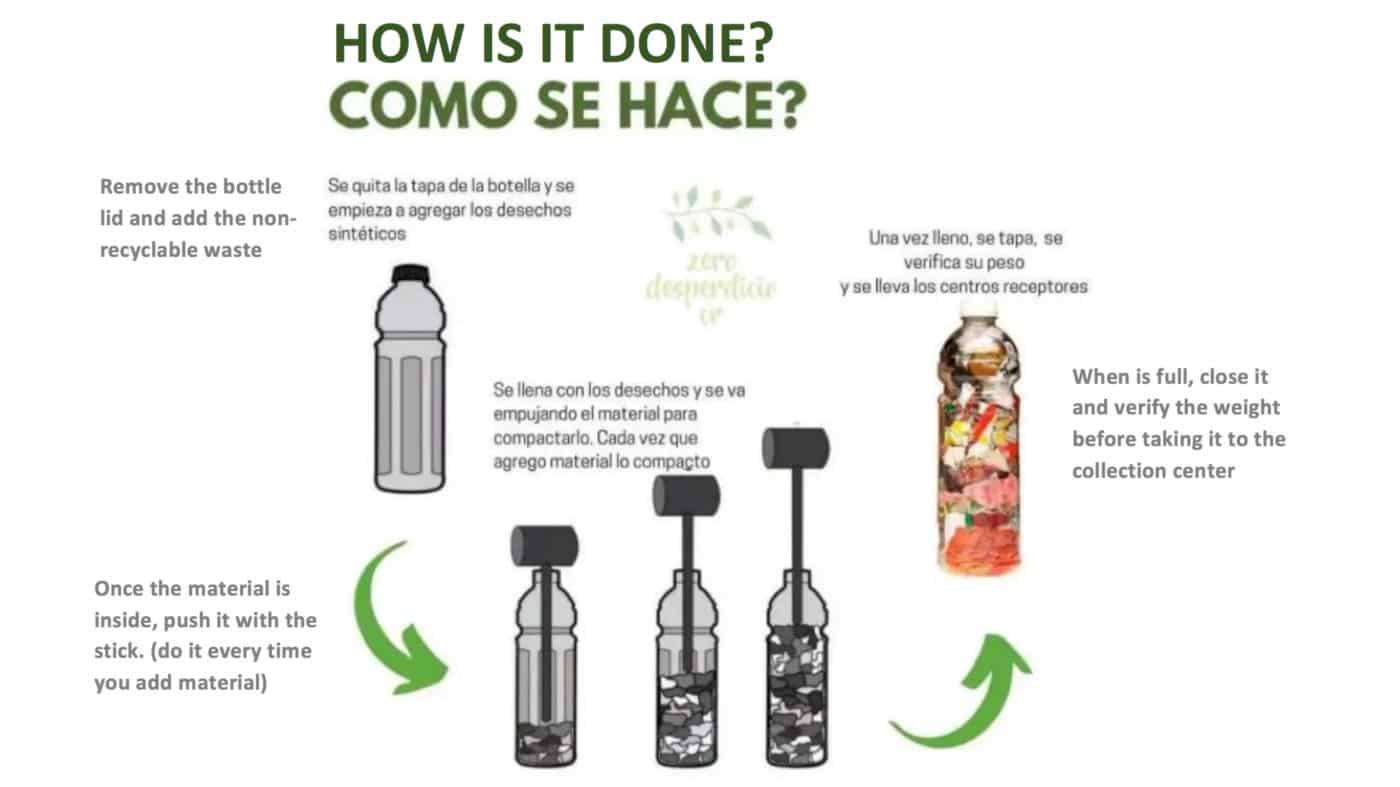How eco-blocking can help achieve the Global Goals
How eco-blocking can help achieve the Global Goals
Read in English
Living sustainably is the aim of many young people today who care about the environment and want to contribute towards helping turnaround the worrying climate change trajectory. Guided by the 17 Global Goals, that in 2015 world leaders agreed to make for a better world by 2030, it’s now up to all of us, government, businesses, civil society and the general public to work together to build a better future for everyone.
We all can make small changes that can make a big difference. Many things can be done around the house and office that do not take much effort but can make a positive impact.
Waste plastic is the buzz-word topic at the moment and with good reason. We have seen the pictures of floating plastic islands, miles wide, polluting our oceans. We have witnessed the sad situation of too much land litter in our streets and countryside.

The Sustainable Development Goal 14 ‘Life Below Water’ and Goal 15 ‘Life on Land’ both support campaigns to reduce our plastic usage. Usage and wrong disposal of plastic is a major cause of marine pollution. The oceans are not somewhere our rubbish should end up, nor in our parks, forests or streets. Delicate ecosystems need to be protected, not dumped on.
Many of us have decided to take action and recycle as much of the plastic we bring into our homes as much as we can. But what about the plastic that cannot currently be recycled – the black plastic and unidentifiable grades of plastic that we are unsure whether or not the recycling centres can process?
At Raleigh Costa Rica we regularly collect our waste flexible plastic (packaging, wrappings, and plastic bags, etc.) rather than putting it in the rubbish bin/trash destined for landfill. With this, we regularly practice a recycling activity called Eco-blocking.
What is Eco-blocking and how do you do it?
An eco-block is an environmentally friendly brick made from recycled materials. To make your own eco-block, gather clean plastic wrappers, even clean toothpaste tubes with the tops cut off and a clear, cleaned and dried plastic bottle with the label taken off. Next get a stick and pack the layers of plastic into the bottle. Pack it down hard until the bottle is solid and you cannot fit any more in. It’s a way to reuse plastic and a great activity for stress-busting!
Here in Costa Rica, if you compact enough you can send them off – they have to reach a certain weight for each size of bottle, and you can receive a small monetary reward. But that’s not the only thing people here do with them. The compacted bottles can be used in construction.
Raleigh volunteers in Costa Rica are in competition with each other to come up with the most creative use of their filled Eco-block bottles. Together we are taking action to reduce plastic and protect our environment.
We can all do something, so it’s time to ask yourself – What will you do?
This UN Day young people are doing their bit to achieve the Global Goals. What are you doing to take action for the Global Goals? If you are passionate about a global issue and want to write for the Raleigh blog, get in touch at alumni@raleighinternational.org
Leer en español
Actualmente vivir sosteniblemente es la meta de muchas y muchos jóvenes, quienes se preocupan por el ambiente y quieren contribuir a cambiar la preocupante trayectoria del cambio climático. Ellas y ellos son guiados por los 17 Objetivos de Desarrollo Sostenible, los cuales fueron acordados en el 2015 los líderes mundiales para que para el 2030, el mundo sea un mejor lugar. Ahora depende de todas y todos nosotros: el gobierno, las empresas, la sociedad civil y el público en general trabajar juntos para construir un futuro mejor para todas y todos.
Nosotras y nosotros podemos hacer pequeños cambios que marquen una gran diferencia. Tanto en nuestras casas como oficinas, muchas cosas que no requieren gran esfuerzo, pero tienen gran impacto, pueden ser hechas.
Los residuos de plástico son el tema de moda en este momento, y con buena razón. Hemos visto imágenes de islas flotantes de plástico, kilómetros de desechos contaminando nuestros océanos. Hemos sido testigos de la triste situación de tanta basura en nuestras calles y zonas rurales.
Islas de desechos flotantes, en su mayoría plásticos, en nuestros océanos
Los Objetivos de Desarrollo Sostenible #14: Vida submarina, y el #15: Vida de ecosistemas terrestres apoyan campañas para reducir la cantidad de plástico que usamos. El uso y el incorrecto desecho del plástico son razones principales de la contaminación marina. Los océanos no son un lugar en donde nuestra basura deba terminar. Tampoco en los parques, bosques, o calles. Los ecosistemas delicados deben protegerse.
Muchas y muchos de nosotros hemos decidido tomar acción y reciclar la mayor cantidad posible del plástico que traemos a nuestro hogar. Pero ¿qué pasa con el plástico que actualmente no se puede reciclar o no estamos seguras de que los centros de acopio puedan procesar?
En Raleigh Costa Rica, en lugar de tirar al basurero, recolectamos plásticos como empaques, bolsas y envolturas. Con esos desechos, hacemos ecobloques.
¿Qué es un ecobloque y cómo se hace?
Un ecobloque es un ladrillo amiglable con el ambiente hecho con materiales reciclados.Para hacer tu propio ecobloque necesitás una botella de plástico limpia y seca, y sin etiqueta. Recolectá empaques de plástico limpios; incluso podés usar los tubos de la pasta de dientes – solo tenés que cortar la boquilla –. Meté los envoltorios dentro de la botella, y con un palito empujalos hacia abajo con fuerza hasta que la botella quede dura y no le quede ningún espacio vacío.¡Esta es una forma de reutilizar el plástico y una gran actividad para eliminar el estrés!
Acá en Costa Rica, si completás una botella, podés enviarla a alguna organización o institución que las colecte. Para ello deben alcanzar cierto peso, según el tamaño de la botella que utilizaste. En ocasiones incluso podrías obtener un pequeño reembolso monetario. Pero esa no es la única cosa que las personas hacen con los ecobloques. Las botellas pueden ser usadas en construcción.
Las y los voluntarios de Raleigh Costa Rica se encuentran en una competencia para ver cuál grupo puede darle un uso más creativo a sus ecobloques. Juntas, estamos tomando acción para reducir el plástico y proteger a nuestro ambiente.
Todas y todos podemos hacer algo. Así que, es tiempo de que te preguntés ¿Qué vas a hacer vos?





